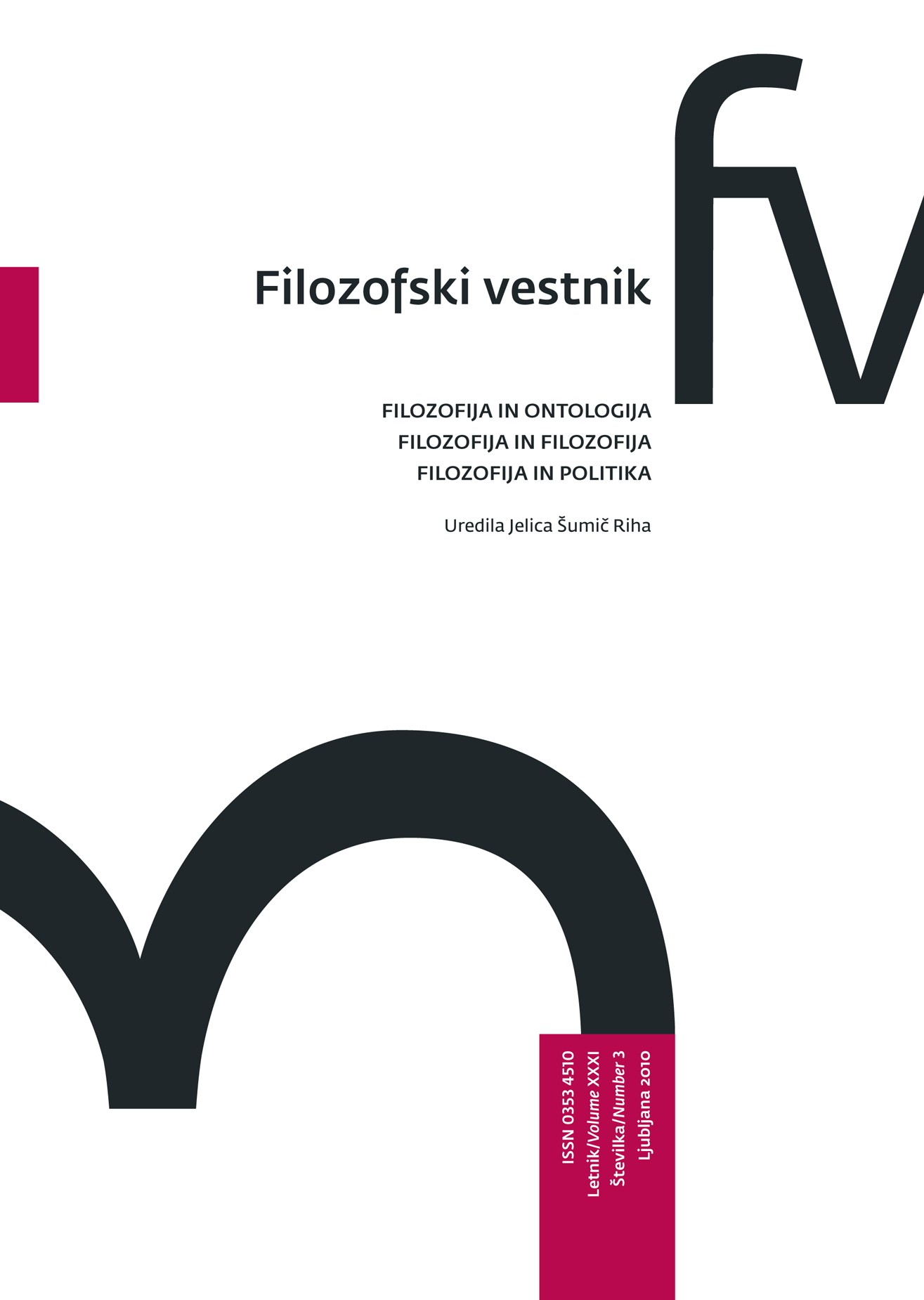Sekvenca, hipoteza, zgodovina: Ideja komunizma v luči singularne univerzalnosti procesa resnice
Ključne besede:
Badiou, singularnost, univerzalnost, Agamben, sekvenca, zgodovina, sodba okusaPovzetek
Članek se ukvarja s premislekom elementa zgodovinske pripadnosti telesu resnici znotraj Ideje komunizma, kakor jo razvija Alain Badiou. V luči Badioujevega pojmovanja singularne univerzalnosti procesa resnice se postavlja vprašanje razmerja med singularnimi sekvencami, ki določajo časovni interval zgodovinske pripadnosti telesu resnice. Ob vzporednem branju nekaterih segmentov Badioujeve filozofije in filozofije Giorgia Agambena, avtor razvija tezo, da ima singularna univerzalnost enako strukturo kot Kantova sodba okusa. Navidez obrobno mesto, ki ga Kant zavzema tako v Badioujevem kot v Agambenovem opusu, se s tega vidika izkaže za osrednjo točko v razvoju politične misli obeh avtorjev, brez katere ni mogoče pojasniti Badioujevega ponovnega uvajanja pojma zgodovine znotraj svoje filozofije. Sekvenca komunizma se v tej luči izkaže kot specifična temporalnost, ki se umešča na presek med diahronijo in sinhronijo, kot taka pa ni niti element čistega zgodovinskega ponavljanja predhodnih sekvenc, niti ni brez razmerja z njimi.Prenosi
Podatki o prenosih še niso na voljo.
Prenosi
Objavljeno
2016-03-15
Kako citirati
Nedoh, B. (2016). Sekvenca, hipoteza, zgodovina: Ideja komunizma v luči singularne univerzalnosti procesa resnice. Filozofski Vestnik, 31(3). Pridobljeno od https://ojs.zrc-sazu.si/filozofski-vestnik/article/view/4501
Številka
Rubrike
Filozofija in politika
Licenca
Avtorji jamčijo, da je delo njihova avtorska stvaritev, da v njem niso kršene avtorske pravice tretjih oseb ali kake druge pravice. V primeru zahtevkov tretjih oseb se avtorji zavezujejo, da bodo varovali interese založnika ter da bodo povrnili morebitno škodo.
Podrobneje v rubriki: Prispevki





